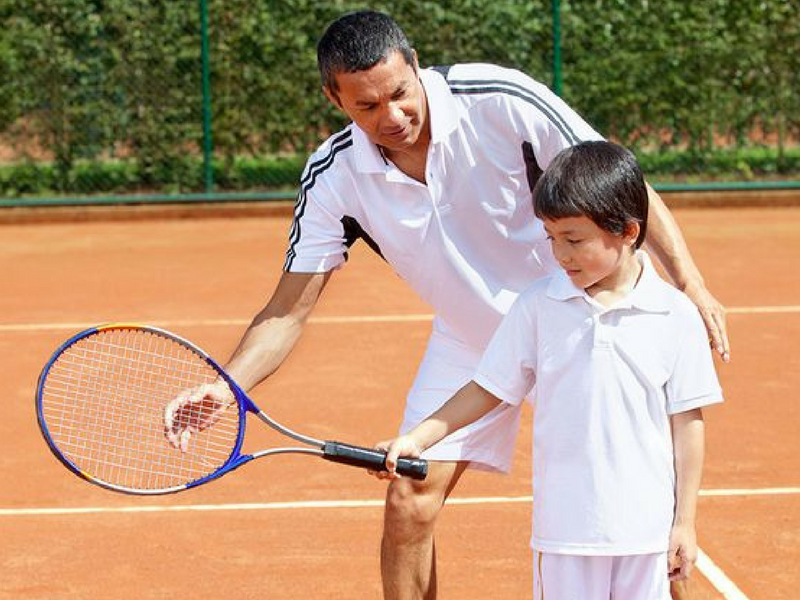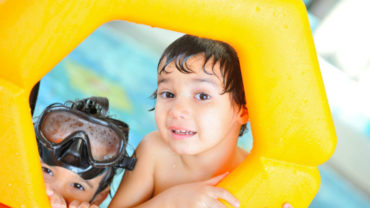Via Lifeopedia: Six Tips for Teaching Sports to Kids
The Benefits of Sports Activities for Children
Sports provide many benefits to children. The games teach children teamwork
and help them develop a commitment to something bigger than themselves. However, you want to ensure that you introduce sports to your child or children in a positive and life-affirming way. That way, you can make the sporting event a pleasant experience for everyone.
Six Tips for Teaching Sports to Kids
Different sports require different skills. However, there are certain steps you should always take when introducing kids to the world of sports play. These steps include the following:
1. Plan your sessions in advance.
It is helpful to introduce the sport slowly rather than just jumping into a game. For example, if you are teaching a child to play baseball, then you might want to start with learning the fundamentals of catching, hitting and pitching before you delve into all of the rules and regulations of the game. You should introduce the skills slowly and have short sessions where kids can practice fundamentals. Plan these sessions in advance so you know what activities you will be covering and what information you want to impart.
2. Get the necessary equipment.
While you don’t want to spend a ton of money on equipment until you are certain that your children will enjoy the sport, you do need to ensure that you have the basic equipment needed to participate in the sport. You can often buy used sporting equipment inexpensively online, in local classifieds or resale stores.
3. Teach safety first.
One of the first lessons that should be taught to kids is how to participate in a sport safely. Explain the basic rules of the game and the fundamentals of safety when participating in sports. Be sure to explain the importance of any safety equipment or pads that may need to be warn during play.
4. Start teaching the basics.
At each sporting session, you can spend a little bit of time on the basics of the game. You want to ensure that the kids have a good time and do not get bored by mundane practice drills. This means you will typically want to have several different activities at each session, focusing on a different aspect of game play. For example, you may plan a four minute warm-up, followed by four minutes of throwing and four minutes of catching. You can then try a catch and run activity. Both explain how to do the essential tasks of the game and illustrate the essential skills by showing the kids what they need to do. Then, give the children lots of time to practice each skill, gently offering suggestions on how to improve their technique.
5. Work up to game play.
Once the children understand the basics of how to play a game, introduce playing in a low-pressure way. You typically do not want to keep score right away. Be sure that every child on the team has a chance to play and to enjoy the sports experience.
6. Sportsmanship.
Focus on being a good winner and a good loser. Kids need to know that not everyone is going to be great at sports, and that they cannot win every game. It is important to teach kids how to be gracious whether they play well or play badly.
Keep in mind that while adults tend to be competitive in nature, unlike winning being at the top for most adults, children are playing for fun (depending on the age). For most children, fun is listed as the top reason for participating in sports. The goals of sport participation at a young age is to stay active, stay fit, learn new skills and valuable lessons such as good sportsmanship and establish a healthy competitive nature.





